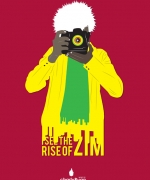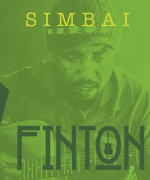Xenophobia - The after thoughts
We do see not far, nor do we learn much. Lack of vision says it’s okay to fight for waitress and gardener jobs in a continent that we call home. Not that there is anything wrong with these jobs it’s just that they should be the alternative and not the norm. Lack of vision replaces failing systems and flawed recipes with foreigners. It limits our ability to identify stumbling blocks so we keep falling over in the same place. Think about this for a minute:
Across Afrika there is a shortage of almost everything. We need more schools, more hospitals, better road and transport networks, more doctors, better housing …. And Yet, Our People Do Not Have Jobs? The problem is not people, who they are, or where they come from, the problem is What We Are Doing With And For The People.
We have enough problems - enough need to put all our human capital to good use. In fact we may not be enough. Our people have no jobs because we are not solving people-related problems. We do not have people focused visions, not at council level, not at City level, not at national level, worse as a continent.
We build malls faster than we build schools or upgrade agricultural and mining infrastructure and future technologies necessary for the age we are entering. Who is going to buy there at these expensive malls, with what money? How is that sustainable? Vision should measure progress based on not leaving anyone behind, yet in principle we just build expectations and hope people catch up somehow.
Levels of violence.
The rest of the world was not shocked that South Afrikans wanted to drive foreigners out of their country because things were getting harder. The most natural instinct is self-preservation. This reaction is happening in the UK, Australia, Greece and the U.S. What shocked the world was the level of violence in the sense that it was so public and so brazen. In its true sense xenophobia is just an irrational fear and dislike of people from other nations. It is not violence. Violence is an expression on one’s emotions and frustration, which is a choice and an active decision. The context in which it happened may have been xenophobic but let us not fool ourselves that this is the only trigger it needs for it to surface:
The fact that people can burn another human being alive then stand and watch. The fact that children are allowed to watch and cheer, that old women stand arms folded, no tears, no sorrow, shows a deeper psychological problem. When you hide behind a bin or a wall, knife in hand waiting to attack someone, you are effectively hunting. Hunting human beings. That level of violence goes beyond the need to express frustration and needs to be solved within its own context so that when next frustrations boil over we witness different decision making.
The word “Foreigner”
We use and have allowed the word ‘foreigner’ to define a whole person, a whole people, their values, their needs and attributes. We have abused that word so much that all a person is and can be, is completely stripped off them with that tag. Is there really anything so foreign about a human being living among other humans? There are no people, no colour or creed of humans called ‘foreigners’, we should reflect this in how we use the word.
There are those that do not kill ‘foreigners’ with burning tires and sharpened knives but with their words, with their characterisation. With the way they discard a people’s dignity and humanity in short sighted attempts to create attention grabbing headlines.
In the media context, the word foreigner is used to draw a line between them and us. It puts a line between people that does not exist, then we shout after - We Are One. There are those that know how to stir it up, repeatedly until something happens, stand back and say “Wow... look at that, look at these people”, when in fact they are The People
Foreign policy matters!
Like the Ebola outbreak has shown. There is no longer ‘them’ and ‘we’. There is now just “Us”. If they get Ebola, we have Ebola. If they are terrorized, so are we. Our leadership and our vision needs to reflect that. If Zimbabweans cry, we need to care why and help put that right, because what hurts them will hurt us. When South Afrikans get frustrated, we need to understand those frustrations because when they boil over, we suffer. We are too nonchalant towards foreign policy matters as Afrikans and with that ignorance we grow and nurture domestic national self-inflicted harm.
We are planning for a more connected world, building for borderless businesses, promoting border-free economies, encouraging cross border solutions AND YET we plan and expect people to be bound by their physical borders?. How does that work? When a simple smashed fence can decide and dictate progress or hopelessness. When war and peace are divided by a line and yet the rules (and profits) that govern those wars are somehow universal.
People have and will always move towards stability, sustainable environments and resources. That is what the human race has always done and will always do. In this context, just closing borders does not help. It has not helped the United States, with all the great resources they have for border control. We need to solve the push factors. Why do people move, what can be done to make them stay?
We need to show comradeship in solving root causes, as much as we do in solidarity with things of a more political nature. Being our brother’s keeper in this day and age is in essence an important step to sustainable individual progress and stability.
Ownership
So in the end, the security services, which should have surely learned from similar attacks were not to blame. The media that stir it up during quiet times, are not to blame. The leadership in Zimbabwe, Nigeria, Ethiopia and others who can’t create havens for their own citizens are not to blame. The locals who were responsible for the killing and maiming were not to blame. The Kings that give ill-advised speeches are not to blame. The employers who pay unfair wages and manipulate labour practices for profits are not to blame. Foreigners who commit crime are not to blame. Leadership that always leads after and never before, is not to blame.
When no one is to blame, everyone is to blame. We seem to have a crisis that no one owns and that is a worry greater than the crisis itself. When next it returns, who is going to be the gatekeeper, the one who shuts the door before the leopard is on the prowl. Marching against xenophobia is nice, but it’s far from the conversation the guy committing it needs and wants to have. It’s far from the solutions that led to his frustrations boiling over. That person needs someone to take ownership of who he became, of the environment that brews his violence, of the system that impounds his hopelessness. He in turn needs to take ownership of his actions, while we own up to our own contribution through ignorance and inaction.




